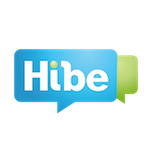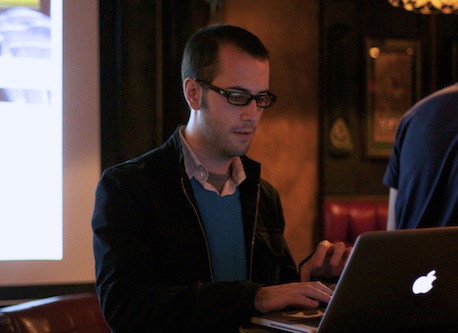Profiled - Hibe.com - The privacy focused social network
An interview with Brendan Charles, community manager at Hibe.com the privacy focused social networK
Social Media Portal (SMP): What is your role at Hibe.com? BC:
BC: My name is Brendan Charles and I am the community manager here at Hibe
http://www.hibe.com. My role in the company is basically to build and interact with our online communities as well as be a point of contact for anyone who has questions about Hibe. I also write for
Hibe?s blog and manage our
Twitter and
Facebook pages.
SMP: Briefly, tell us about Hibe.com, what is it and what does it do?
BC: Hibe.com is a privacy aware social network which allows users to manage their different social contexts just like they do in real life. You can have a different avatar, contact and profile information for your different contexts and share accordingly with each one. Hibe does not use the information of its users for advertising purposes or sell it to third parties.
For a brief explanation about Hibe, feel free to
watch our 1 minute video.
SMP: What made you (or the founders) start Hibe.com and when did it launch?BC: Hibe was created as a response to an increasing desire for privacy online. With many other social networks increasingly profiting off the information of their users and making their information public by default; Hibe was created to change the status quo and give users back the power of choice.
We have been working on Hibe since 2009 building a platform that addresses the issues above. For a while we had a limited group on Hibe but on August 1, 2011 we opened up and now have new accounts opening up every week.
SMP: How is it funded and how do you attract investors? BC: Hibe is privately funded however we have noticed that a big reason why our investors have been contributing is because not only is it a product they believe in but it is also something that they themselves need. Managing our identity and reputation online is getting increasingly hard in this public and open atmosphere.
SMP: What was the most challenging part of building the service?BC: A big challenge with building Hibe has been privacy awareness. Many people only think of privacy in an offline capacity. For example, almost everyone would find a stranger looking through their window as extremely invasive, which is why people have blinds. However there?s not the same kind of sensitivity to a company having access to all your private information you might share online.
Building the Hibe platform itself has also been its own challenge. Social relationships and the network behind them can get extremely complicated; and when you add Hibe?s faceting system these interactions multiply ad infinitum. The challenge we faced was to build a system that could handle this, while giving the users a product that is easy and fun to use.

SMP: Who are your target audience and why?BC: Many people find themselves juggling multiple audiences and need to personalize their interactions with each of them. Hibe is for these people who want to be able to fully interact with each of their contexts without alienating the others.
Hibe is also for anyone concerned with the current climate of privacy in social networks. Whether it is users wanting more control over how they are seen online or those who want the security of knowing their information is not being sold off, Hibe is the social network that responds to these needs.
SMP: How did you initially attract users to Hibe.com service, and how do you do it now?BC: There was a big demand for a more private social network, especially when we began development on Hibe. When we began announcing our platform there was automatically a big draw from those looking for alternatives. Since then we have been very active in the privacy community and I think the relationships we have been building with other participants have been really satisfying.
SMP: What are the low moments of what you have been doing so far?BC: One low moment for the company was half-way through development we realized that a re-design of the site was needed if we were to stay competitive. However after our designer showed us the first drafts of the new look we instantly got a new-found excitement and since then we?ve been on a roll.
Responding to our first round of feedback on user-experience of the site was also quite a challenge. We really needed to re-evaluate certain aspects of Hibe to make it much more understandable to newcomers the platform but now that we did, we?re much better off.
SMP: What are the high moments of what you have been doing so far?BC: You wouldn?t think it at first but the launch of Google+ was actually really good news for us. Not only did it confirm that contextual sharing was really the direction of future social networks, but it confirmed that privacy was something that people cared about. It was also a pretty big moment when we took a look and realized there is a lot that we?re offering that isn?t even close to being present in Google+.
Facebook responding to Google+ was also really great to witness. For a while Facebook was so brazen in its approach against privacy, so to have them finally begin to release privacy updates has been an interesting reversal.
SMP: Now that you are established, what do you see as your biggest challenges and opportunities?BC: We still have a lot of work ahead of us as far as privacy awareness, though I think our involvement in the privacy community will continue to generate results here.
As with any social platform, responding to user feedback and requests will be really important for us in the coming few months.
SMP: Privacy is a big deal, why has it taken social networks and similar technologies so long to really provide what consumers want?BC: The biggest obstacle in the way of real privacy improvements is the revenue model of current social networks in one based in advertising and data. So the needs of consumers for privacy are contrary to the revenue model of the social networks they are using.
Google and Facebook both profit over what their users share and make public, so why would they give users the power to keep this private? To really give users what they want, a different kind of approach is needed, that?s where Hibe comes in.
SMP: What are you doing that is different in the privacy area (and in your opinion who was first to identity and then implement this need)?BC: What Hibe is doing differently is really respecting the choices users make over sharing their information. Each user can have a completely different presence for each of their contexts - displaying a different avatar, contact information and posts for each. No one is allowed seeing anything the user doesn?t allow them to see and Hibe does not share this information with third parties or use it for advertising purposes.
Furthermore Hibe?s approach to any new features that might involve users? privacy is strictly opt-in. Our goal is for users to never be surprised with what is showing up on their profiles or what is being shared.
As stated before, Hibe has been working since 2009 on a platform that would be able to give users back their privacy so we really think we were one of the first. This is in large part thanks to the founders of the Hibe forecasting that privacy would increasingly become an issue that would be at the center of social media in the coming years and taking the time to build these concerns into the platform.
SMP: Who do you think is tackling privacy better and why (Facebook or Google+)?BC: To be honest neither is really doing this effectively. I know this might be avoiding the crux of the question, but any other answer would be less than honest:
Facebook?s approach to privacy has always been ?Features first, apologize later? by enabling features that cross privacy boundaries without even notifying users, then apologizing - but doing the same thing a few weeks later.
Meanwhile Google releases a new social product called Google+ that uses privacy as a selling point, but creates policies like mandatory public profiles and banning any accounts not using real names - it?s hard to say Google+ is really tackling privacy.
Also both companies use the information of their users for profit and advertising, without a change here both are on the losing end of privacy.
SMP: What are the next moves for Hibe.com (any big news we should know about)?BC: We are continuing to release new accounts every few weeks and are really pleased with the feedback we are getting thus far. Our next moves are taking feedback and requests into consideration and improving the platform.
We do have some big announcements in the next few weeks which we?ll be posting on our blog, so stay tuned!
SMP: What?s the next big step for social media and networks?BC: I think ownership is the key to the next big social network. The first group to really be able to give users ownership of the content they share and offer a solid service while doing so will be extremely successful. Many products currently on the market treat their user-base as little more than a source of data and I think the first social network to really break from that and offer something really cool will win out in the end.
SMP: What?s going to be the most interesting aspect regarding social media technology throughout 2011 and heading into 2012?BC: There is a kind of polarization taking place in social media in regards to privacy. Facebook is continuing to push for it?s radical openness - which can be clearly noted at F8 and Google is introducing products such as Google Latitude where you can track where your friends are at any moment. These companies will continue to push for this kind of openness which they can profit from.
On the other hand we have new social services entering the market where privacy is much more of a priority and even consumer groups who try to increase awareness. I think one of the most interesting things in the coming year or two will be to see how these two sides will clash.
SMP: Best way to contact you (e.g. Facebook, LinkedIn Twitter, YouTube etc)?Twitter:
http://twitter.com/hibecomFacebook:
http://facebook.com/hibecomYoutube:
http://youtube.com/hibecom You can also forward any questions to community @ hibe.com
Now some questions for fun
SMP: What did you have for breakfast / lunch?
BC: This morning I had a bowl of mini-wheats and a cup of coffee.
SMP: What?s the last good thing that you did for someone?BC: I brought in doughnuts for the office last Friday. Does that count?
SMP: How many hours to you work a week?BC: I work 8 hours here at Hibe and some nights go home and work another 5. So about 65-70 hours per week total.
SMP: If you weren?t working at Hibe.com what would you be doing?BC: If I wasn?t working at Hibe I would probably be doing video work which is a passion/hobby of mine. I love to film, edit, animate, etc.
SMP: When and where did you go on your last holiday?BC: I have some family in Vermont so I went there.
SMP: What?s the first thing you do when you get into the office of a morning?BC: Check Twitter, make coffee.
SMP: If you had a superpower what would it be and why?BC: Teleportation! There?s just something really cool about being able to pop in and out of places at will - it would make multitasking a breeze!
If you're interested in doing a Social Media Portal (SMP) interview, get in touch.
8TW4AU7NBYSF